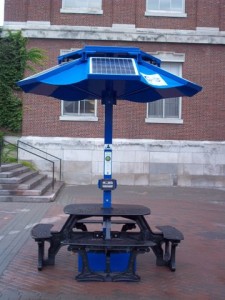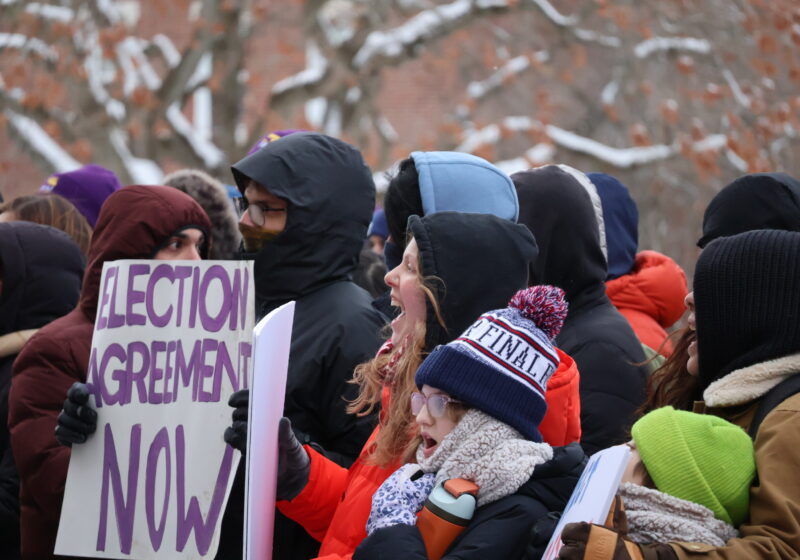Environmentalism is a cultural phenomenon. For all the lip service Americans pay to the environment, we’ve seen remarkably little progress on issues that really matter. This is not due to apathy, but rather an unfortunate way of thinking about environmental issues. The University has an enthusiastic sustainability campaign, but it — like the rest of America — desperately needs a shift in mindset.
Nationally, millions are encouraged or forced to recycle, even in areas where recycling wastes far more energy than throwing things away. Millions waste money buying local foods, even when growing them locally out of season takes more energy than importing them. The most recent environmental cause célèbre is the war on hydraulic fracturing, which has yet to produce a concretely demonstrated, serious case of pollution. Yet in the status quo, natural gas and coal are the cheapest forms of power, and fracking bans lead directly to new coal plants. Pollution from coal power kills thousands of Americans annually and produces twice the amount of carbon dioxide as natural gas.
The fear of nuclear accidents has prevented the construction of carbon-free nuclear plants for decades — even though the total number of nuclear meltdown casualties in history is less than the yearly number of American coal casualties. Pop-environmentalism focuses on images, not statistics. Responsible policymaking, voting and political activism acknowledges cost-benefit tradeoffs, yet bad “environmentalism” would have us bear the costs of coal power and forgo alternatives based on the image of affordable renewable energy sources that cannot, and may never, meet more than a fraction of our needs.
National energy policy hardly hinges on the University, Steven Chu notwithstanding. Yet, we still have civic responsibility to promote rational environmental policy. Sadly, some things done in UR’s name do the exact opposite. Note the solar-powered, laptop-charging picnic bench between Rush Rhees Library and Meliora Hall. It is rarely used, given Rochester weather, but even if it were used frequently, the value of the electricity produced would still be a fraction of the cost. UR Green News — the University’s biweekly sustainability newsletter — admitted that the bench made no “economic” sense but claimed that “its value was assessed from a different angle, as a promotional tool that demonstrates the University’s commitment to sustainability…. [sustainability] and the initiatives that support it are not purely economic. … These are not quantitative matters.”
Unfortunately, these are quantitative matters. If you want to minimize harm to current and future generations, you must quantify that harm. To say otherwise is to deny reality and substitute religion for science. Producing that bench created more pollution than its meager output can prevent. (Solar panels require rare earth minerals, and rare earth mining produces substantial pollution.) Any symbolic value it has is negative symbolic value — it symbolizes waste, not innovation. Wishful thinking, not real solutions. Similarly, O’Brien Hall was constructed to comply with expensive LEED standards despite scant third-party evidence of LEED’s effectiveness and no public analysis of the O’Brien building plans in particular.
This is not to say that the entire sustainability effort is misguided or counter-productive. Meatless Monday is an example of a successful program that informs students about the environmental and health impacts of meat rather than simply asserting that a particular behavior is “green.” This is the model we need to adapt.
Taylor is a member of the class of 2015.
Basketball
UR men’s basketball get their hearts broken on Valentine’s Day
Desperate for points, UR successfully drew a foul on Adusei, putting Kwiecinski at the stripe. He also made both. Without options, UR fouled Adusei again, who made both free throws.
food
Laila El-Haddad discusses food as a means of resistance
“During the past 15 months, we have seen even in times of war and genocide […] Palestinians, like anyone else, must eat, must survive."
Graduate Student Union
UR graduate students hold protest for unionization
Graduate student organizers are ready to do “whatever it takes” to form a union. “We feel like there's an extreme need here to get it done as quickly as possible,” said organizer Katie Gregory, a Ph.D. candidate in the Department of Earth and Environmental Sciences. “Up to and including a strike, everything's on the table.”



